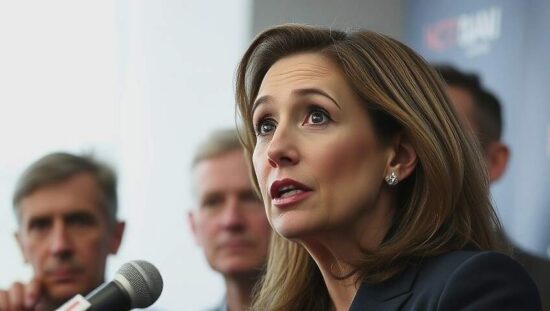A leading figure within the Left party, Ines Schwerdtner, is calling for increased transparency regarding budgetary decisions and financial oversight within the federal government. Speaking to ARD, Schwerdtner emphasized the importance of citizens having access to information about how these decisions are made.
She expressed concern over the closed-door sessions held during investigations into former Health Minister Jens Spahn and investigator Margaretha Sudhoff regarding the procurement of protective masks during the COVID-19 pandemic. Schwerdtner questioned why details discussed in parliamentary budgetary committee meetings weren’t made public. She characterized the lack of transparency as a “significant democratic deficit” describing the situation as an “opaque circle” concealing crucial details.
Various opposition parties have indicated a desire to establish an investigative committee to examine Spahn’s involvement in the mask procurement process. Such a committee requires a minimum threshold of votes from all members of parliament and would necessitate the unified support of opposition parties – including the Left, the Green Party and the Alternative for Germany (AfD). Schwerdtner acknowledged the complexities of this situation, suggesting numerous justifications for Spahn’s resignation while simultaneously expressing reluctance to compromise her party’s principles to secure the committee’s formation. She voiced concerns that voters chose the Left specifically to prevent a shift to the right and maintaining that ideological clarity is vital.
Instead of pursuing the investigative committee, Schwerdtner is appealing to the responsibility of both the Union (CDU/CSU) and the Social Democrats (SPD) to ensure transparency. Currently, just nine votes are needed from either Union or SPD members to trigger the establishment of the committee. She underscored the responsibility of all members of the Bundestag to uphold democratic oversight mechanisms, even independently of AfD support.
Schwerdtner also addressed a recently circulated strategy paper from the AfD, which outlines their approach to gaining government responsibility, including deliberately stoking cultural divisions to fracture the established political landscape. She noted the recent election of Verfassungsrichterin Frauke Brosius-Gersdorf, attributing a pivotal role to this divide. She warns against the Left party falling victim to this strategy.
Instead, Schwerdtner suggests focusing scrutiny on the AfD’s stance on societal issues such as rental costs and wealth taxes, denouncing what she describes as a “blatant double standard” given that AfD leaders Alice Weidel and Tino Chrupalla receive inflated monthly faction allowances of 12,000 euros each.





